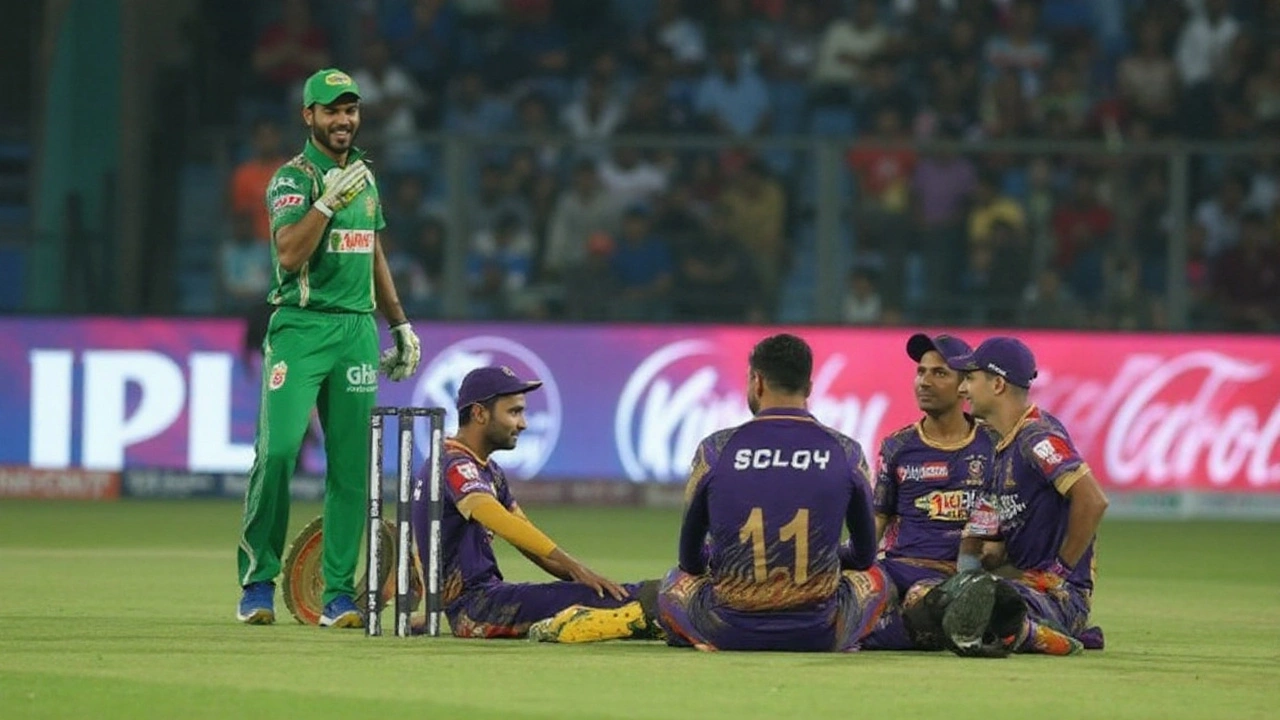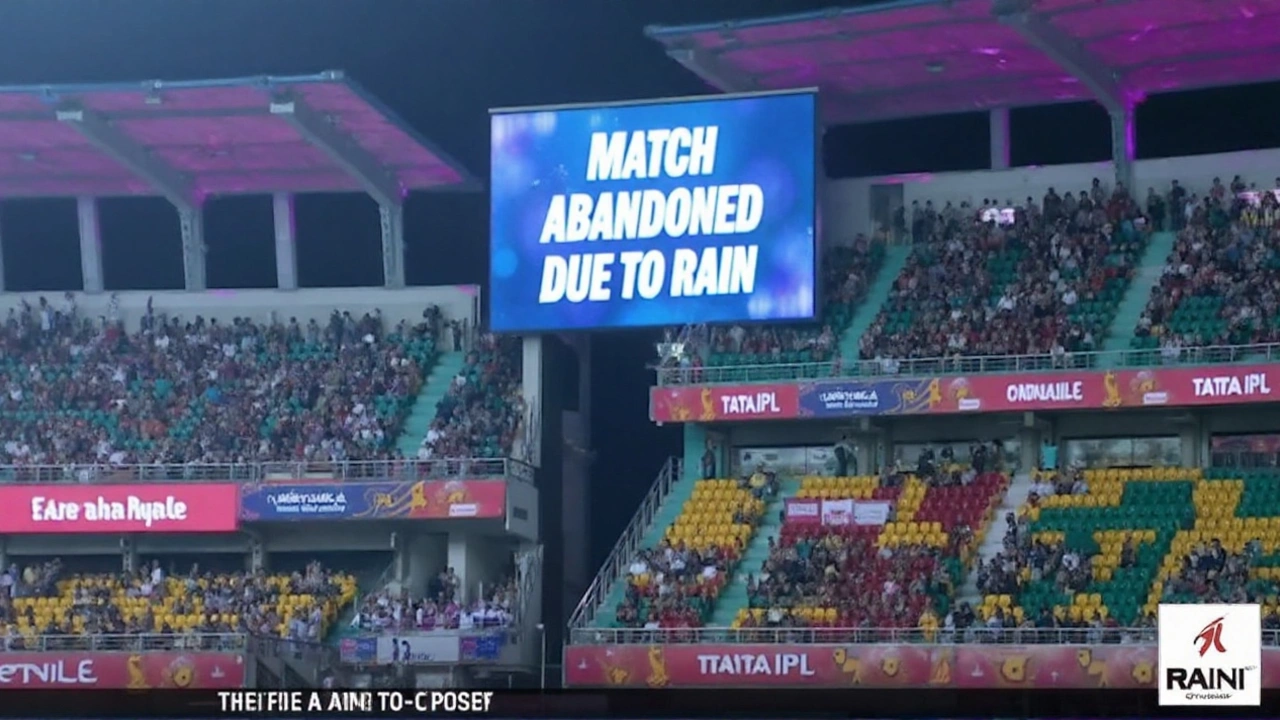Rain on the radar as Eden Gardens readies for the big night
The IPL couldn’t have asked for a louder opener, but Kolkata’s sky might steal some of the noise. The weather department has flagged showers around the time the opening ceremony begins and the toss is scheduled, raising real questions about how the night unfolds for KKR vs RCB at Eden Gardens.
Here’s the timing crunch. The opening ceremony is planned for 6:15 PM, and the toss is expected between 7:30 and 7:40 PM. Forecast models point to rain cells around 7:00–8:00 PM—right across those key windows. That’s why fans, teams, and broadcasters are bracing for a stop-start evening.
There is a sliver of good news. Through the afternoon, conditions in Kolkata improved from “wet” to “cloudy with breaks,” and local observers reported longer dry patches. If the heavier showers slide past the city or fade quickly, officials could squeeze in the full opener, even if the ceremony gets trimmed on the fly.
Eden Gardens, for its part, is as ready as a venue can be. The outfield is covered edge to edge at the first sign of drizzle, and the ground staff have high-capacity super soppers and an upgraded drainage setup. In recent seasons, the ground has cleared standing water far quicker than it used to, often turning a washed-out outfield into a playable surface in under an hour once rain stops. That said, the big unknown is intensity. A short shower is one thing; a stubborn, heavy spell is another.
The first headache, though, is the opening ceremony. Most of it is built for the outdoors. If there’s active rain or gusty wind, organizers will have to shorten performances or delay segments. They’ve rehearsed contingency sequences, but any prolonged shower in the 6–8 PM window will reduce the glitz and compress the schedule for cricket.
Why does this opener feel larger than usual? It pits the defending champions KKR against a full house waiting to see Virat Kohli lead RCB’s charge into a new season. You can hear the buzz in the queues outside the ground and in the lanes leading to the Maidan. Kolkata knows how to put on a night game, and the atmosphere, even under gray clouds, is electric.
Toss strategy could be decisive if the weather plays games. Captains in wet conditions often prefer to chase, banking on a revised target under the Duckworth-Lewis-Stern (DLS) method and the tactical clarity that brings. But there’s a second angle: if the pitch stays under covers for long, it can start a touch sticky, allowing seamers to nibble it around in the powerplay. That makes early wickets priceless and could nudge teams toward picking an extra seamer if the radar looks ugly.
What about dew? On clear Kolkata nights, the chasing side often enjoys a slick outfield and a wet ball, which hurts spinners. But when rain hangs around, dew patterns change. If showers keep cutting through the evening, you may see less late-night dew and more grip for spinners—at least until the outfield completely dries. Expect teams to keep multiple ball towels handy and spinners to work the seam hard.
As for the playing conditions, here’s the simple version. If rain delays the start or interrupts during play, officials will reduce overs to fit within the night’s cut-off. For a T20 game to produce a result, both teams must face a minimum of five overs, unless one side is all out or a target is reached earlier under DLS. No reserve day is set aside for league matches, including the opener, so everything depends on tonight’s weather and how much time can be saved.
If a match starts late, umpires can push the scheduled times and compress innings to keep a result possible. If the rain returns mid-innings, revised targets come into play. If both sides somehow get their reduced allotment and finish level, a Super Over decides it—weather permitting. If not even five overs per side are possible, the match is abandoned and the points are shared.
On the ground, the monitoring is constant. Match officials have live feeds of local radar, and the stadium’s operations box stays in lockstep with the meteorological inputs. The message internally is clear: cover early, drain quickly, decide late. If the showers ease around prime time, they’ll try to play. If the window opens later, they’ll pivot to a shortened contest.
Fans should plan for a long evening. Carry a light rain poncho instead of an umbrella (big umbrellas often aren’t allowed in stadiums), keep your ticket and ID handy for re-entry if needed, and follow the venue’s advisories on big screens and public address. If you’re coming by public transport, allow extra time. Rain in central Kolkata can slow traffic around the Eden Gardens area to a crawl.
What about tickets if it pours all night? Franchise ticket policies vary, but historically, fans receive a refund if no ball is bowled. If a match begins and later gets abandoned without a result, refunds typically depend on the specific terms listed on the ticketing platform. If you bought digitally, check your booking for the official policy rather than relying on social media forwards.
What are teams weighing right now? For KKR, defending the title at home means managing expectations and conditions. They’ve built a balanced unit and usually lean on a multi-pronged attack. For RCB, the core question is how they handle the new-ball phase with bat and ball if the pitch has a bit of tack. Kohli’s presence lifts the chase, but early discipline in the powerplay could matter more if the game shrinks to a 10–12-over shootout.
Another small but real factor: fielding in drizzle is hard. Even high-class fielders misjudge skiers under dark clouds and patchy light, and wet outfields punish dives. Teams will likely station their safest hands in the hotspots and rotate their seamers in shorter bursts to control the wet ball better.
As of the latest checks, the city sits under a thick blanket of cloud with intermittent breaks. The meteorological alert covers light to moderate showers during the evening hours, with a chance of intensity spikes around early prime time. If luck tilts the right way, there’s a playable window later in the night. If not, we’re looking at a shortened contest or, at worst, a washout.
Either way, the plan is to push for a game if conditions allow. Ground staff will keep the square sealed, the outfield covered, and the super soppers rolling the minute the rain backs off. The umpires will leave decisions as late as they responsibly can to give this opener every chance.
So keep the poncho close, expect updates near the toss window, and don’t be surprised if the first balls come after a delay and with fewer overs. Eden Gardens has beaten the rain before. Kolkata just needs one more break in the clouds.

What to watch for if play begins late
- Reduced-overs chase: Teams prefer chasing under DLS; expect a bold toss call toward bowling first if rain lingers.
- Seam-friendly start: A pitch under covers can aid movement; the first two overs may decide the tone.
- Spin calculation: Less dew and a heavier ball can keep spinners in the game longer than usual.
- Fielding factor: Wet conditions mean misfields; teams will protect key boundary riders and inner-ring specialists.
- Late-night window: If showers ease after 9 PM, a 10–12-over game per side is realistic, weather permitting.
